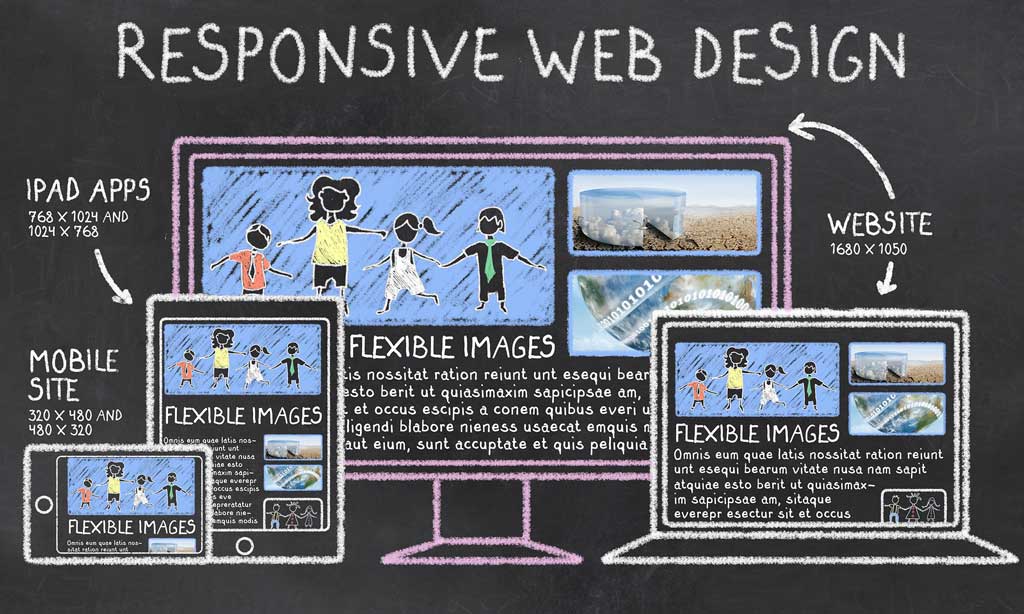What Is Responsive Web Design?
When it comes to web design, a lot of terminology gets tossed around. Things like Flash support, social media integration, blogging and even terms that sound somewhat ridiculous like Ajax and Ruby on Rails can be common buzzwords in web design conversations and articles. However, one term, RWD, or Responsive Web Design (no, not Rear Wheel Drive) can have a real impact on your website and how it is viewed by potential visitors.
This brings to mind, do you need RWD on your site? The answer to that question varies between maybe, probably and definitely. Basically stated, RWD is a design concept that allows your website to essentially “automatically optimize” itself depending on what type of device is “looking” at it. As you know, mobile devices like smartphones have several limitations including screen size and usually very weak multimedia support. Tablets provide a somewhat larger screen size and somewhat better multimedia support, but not to the level of a full blown web browser on your desktop or laptop computer.
Is Responsive Web Design Important?
If you’ve ever gone to a website and seen pieces of it jump around as the screen rearranges itself, you’ve probably seen RWD in action. Instead of being placed in specific areas on a screen, website elements are placed in grids instead. When a website detects the type of device that is viewing it, as well as the size of the screen it is being viewed on, a series of “judgments” are made to make the screen look as good as possible while providing the best user experience possible at the same time.
As an example, graphics, photos and text may be automatically manipulated for the size of the screen they are being displayed on, most often as a percentage-of-original basis. While text, graphics, etc. are geared to be shown at 100% size on large screens such as widescreen monitors on a home system, it may be reduced to 75% size on a widescreen laptop or even as 18.5% on a small screen smartphone thanks to RWD. This holds true for video windows, ad placement and other screen elements as well.
But that still doesn’t answer the question “do I need this?”. The answer basically comes down to who do you expect to use your website. If you have a customer base that will pretty much only use your website on home PC’s with broadband internet connections, the answer is probably no. Even users with laptops and tablets such as iPads will probably have no problems with your site.
However, if your users are constantly on the go and primarily use tablets and smartphones to connect with your site, then the answer is definitely “yes!”. While your site will still look good and be easy to use on home computers and laptops, for those users who need to easily navigate around your site, get full access to everything your site is offering and it still looks and feels slick and professional, then RWD is definitely the answer.
Yes, You Need This
Despite RWD being a choice, any modern web designer or business owner would be foolhardy to not design with mobile devices in mind. Not only is mobile already huge- but it is getting bigger and bigger. Even if you are operating in a niche that literally does not use any mobile devices (I can’t think of one), some segment of your audience will- and not designing for mobile will cost you visitors and business. Take RWD for what it is though- a PART of your mobile device strategy. Smashing Magazine has a great article on it here.
Chris is a father of 4 and works full time as a network engineer. He loves The Office, P & R, brewing (and drinking) beer, and of course Web Design and SEO.
About us and this blog
We are a digital marketing company with a focus on helping our customers achieve great results across several key areas.
Request a free quote
We offer professional SEO services that help websites increase their organic search score drastically in order to compete for the highest rankings even when it comes to highly competitive keywords.














